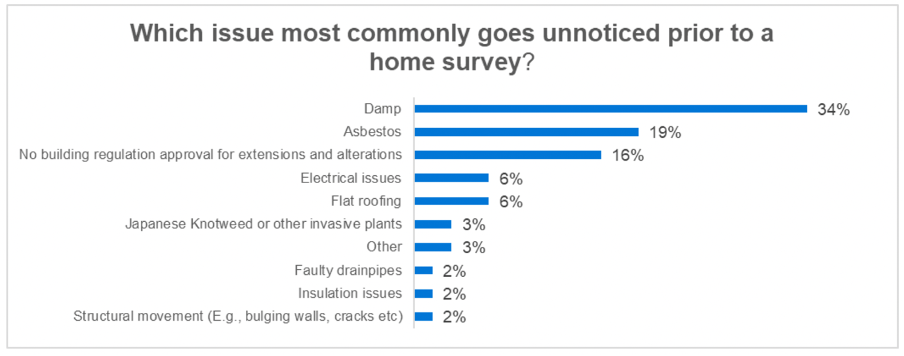Having a professional building survey conducted is a critical milestone on the path towards buying your dream French property. A chartered building surveyor will carry out a completely impartial assessment of the property before the sale and purchase agreement has been finalised, so you know precisely what you’re getting into before you sign on the dotted line.
(Image source: pixabay.com)
Read more: How to Find the Right French Surveyor for Your Needs
What happens after the building survey is complete, however, depends on its verdict. If you’re happy with the results you receive from your building surveyor, then you can proceed with the purchase process of your chosen property.
But what happens when building surveys reveal defects you hadn’t expected, budgeted, or planned for?
Well, though this may be frustrating, it might not necessarily mean you have to give up on your dreams just yet. Depending on the extent and severity of the issues uncovered in the building survey, you will be presented with several options.
Below, we consider the most common defects property surveys uncover, and consider what these options are should any issues turn up on your survey report.
Common Issues Uncovered by Building Surveys
In France, full pre-purchase building surveys aren’t “the done thing” like they are in other countries. Instead, pre-purchase property surveys focus on the health and safety of the building, the natural or industrial risks, and its environmental impact.
These are statutory surveys that are a legal requirement under French property law and are collectively referred to as the DDT, or dossier de diagnostic technique (technical diagnosis file).
Read more: What to Expect from a Property Survey in France
On top of the DDT, it is highly recommended that buyers also have a professional building survey conducted by a chartered building surveyor. Professional building surveys will unearth problems that the DDT doesn’t check for, such as the presence and extent of damp and the structural integrity of the building.
In addition, chartered surveyors will be able to give you a realistic property valuation based on the survey report, as well as advise you on how likely it is that you will be able to obtain planning permission for any improvements or extensions you may wish to make. What’s more, chartered building surveyors are able to reveal if any existing extensions or alterations have building regulation approval – because if they don’t, it will be the buyer’s responsibility to fix the problem post purchase.
Read more: An Easy Guide on How to Get French Planning Permission
There are many problems a building survey may uncover. A recent study reveals the most common issues that go unnoticed prior to a property survey. Damp was found to be the most likely problem to go undetected, followed by asbestos and the absence of building regulations.
(Image source: propertyindustryeye.com)
Steve Rayers, Surveying Director for Legal & General Surveying Services, comments on the findings: “The main issues that go undetected, such as damp and asbestos, pose a clear health hazard and only get worse – and more expensive to fix – over time. Buying a house without building regulation approval is equally risky. If buyers proceed with their purchase without approval the problem becomes theirs, meaning that they must pay to fix the work or return the house to its original state.”
What Are Your Options Following a French Property Survey?
If any defects are detected in the property survey, you have some serious decisions to make. This is a good thing, however, for the whole purpose of property surveys is to ensure buyers are equipped with all the necessary guidance and information they need to make the most informed choices.
As such, following a survey report, you can either:
1. Pull out of the sale – If you deem the remedial works to be beyond your budget you can simply pull out of the purchase.
2. Ask the seller to fix the problems – Some sellers may be willing to fix any issues to keep the sale moving forwards. However, it is advised that you then have a second property survey conducted to ensure the seller has indeed fulfilled their promises.
3. Renegotiate price – One of the key benefits of having a professional property survey is the bargaining power it provides when negotiating the price of the property. The survey report will identify any defects, and you can then obtain quotes for the costs of remediation. Armed with this information, you may then be able to negotiate a lower price that offsets the costs of these repairs. However, it’s essential to be prepared for the possibility that the seller may refuse to lower the price, despite the survey findings. In that case, you will need to decide whether or not to proceed with the sale.
Charles Mackintosh South of France Property Surveyor
If you’re looking for a RICS chartered building surveyor in the South of France, Charles Mackintosh is at your service. With over 30 years’ experience living and operating in the region, Charles specialises in providing highly regarded English language property surveys and advice to overseas buyers. Get in touch today for more information.

